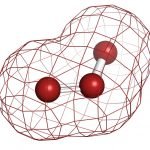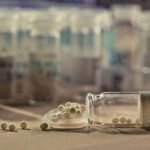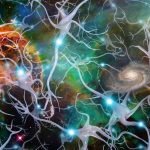Study Looks at Antipsychotic Use in Kids with ADHD
Node Smith, ND
Although fewer young people with ADHD are treated with antipsychotic drugs than suspected, many prescriptions for the drugs do not appear to be clinically warranted, according to a new study from psychiatry researchers at Columbia University Vagelos College of Physicians and Surgeons. They also found that antipsychotic use among youths with ADHD was highest among preschool-age children.
Antipsychotic use among youths with ADHD was highest among preschool-age children
In recent years, pediatricians and parents have expressed concern that some physicians are prescribing antipsychotic drugs to youths with ADHD who have significant aggressive or impulsive behavior. Youths with ADHD who are treated with antipsychotics are often also diagnosed with depression, oppositional defiant disorder (ODD), or conduct disorders (CD), even though there is limited evidence that the drugs are effective for ODD or CD and no evidence they are effective in treating depression.
Background
We didn’t know how widespread this practice was among young people starting ADHD treatment. There are substantial risks associated with the use of antipsychotic drugs in young people, including weight gain, hyperlipidemia, diabetes, and even unexpected death,” said Senior author Mark Olfson, MD, MPH, Elizabeth K Dollard Professor of Psychiatry, Medicine, and Law at Columbia University Vagelos College of Physicians and Surgeons.
Researchers analyzed medical and prescription drug data on 187,563 commercially insured youths (ages 3 to 24) diagnosed with ADHD
To determine the prevalence of antipsychotic use in youths with ADHD, the researchers analyzed medical and prescription drug data on 187,563 commercially insured youths (ages 3 to 24) who were diagnosed with ADHD between 2010 and 2015. None of the youths had a recent coexisting psychiatric diagnosis (such as schizophrenia or bipolar disorder) that would warrant treatment with antipsychotic drugs.
What the study found
The researchers found that 2.6% of youths diagnosed with ADHD were prescribed an antipsychotic drug within a year of diagnosis–four times the rate among young people in general. Antipsychotic drug use was highest (4.3%) in the youngest children diagnosed with ADHD, those aged 3-5 years.
In about half of those taking antipsychotic drugs, the researchers identified a potential diagnostic rationale–such as bipolar disorder, psychosis, ODD, or CD–for prescribing them.
“While antipsychotics are not FDA-approved for these diagnoses, there is scientific evidence to support their use in treating severe symptoms of ADHD,” says Ryan S. Sultan, MD, lead author of the paper and assistant professor of clinical psychiatry at Columbia University Vagelos College of Physicians and Surgeons.
Additional findings
The study also found that fewer than half of the children and adolescents taking antipsychotic drugs had been treated first with stimulants such as Adderall and Ritalin, the recommended medication treatment for ADHD.
“Many physicians bypassed stimulants and went right to antipsychotics–contrary to expert opinion about treatment for ADHD, and unnecessarily exposing patients to the risk of severe side effects such as substantial weight gain,” adds Sultan.
What the study means
“It’s reassuring that only a relatively small percentage of these children were prescribed antipsychotics,” Olfson says. “But we should be working to reduce that number even further. For at least half of the young people in our sample who were prescribed antipsychotics, we couldn’t find a rationale in their claims records to explain why they were taking these medications.”
“While hospitalization and use of other medications may be markers for more severe symptoms, we don’t have enough information from these records to determine symptom severity,” adds Sultan. “Antipsychotic medications play a small role in the treatment of severe ADHD symptoms, but in the absence of severe symptoms, there are safer, more effective medications for youths with ADHD.”
Both Sultan and Olfson suggested that many of the behavioral symptoms that prompted physicians to prescribe antipsychotic medications as an initial treatment might have been resolved by prescribing recommended ADHD medications first.
 Node Smith, ND, is a naturopathic physician in Humboldt, Saskatchewan and associate editor and continuing education director for NDNR. His mission is serving relationships that support the process of transformation, and that ultimately lead to healthier people, businesses and communities. His primary therapeutic tools include counselling, homeopathy, diet and the use of cold water combined with exercise. Node considers health to be a reflection of the relationships a person or a business has with themselves, with God and with those around them. In order to cure disease and to heal, these relationships must be specifically considered. Node has worked intimately with many groups and organizations within the naturopathic profession, and helped found the non-profit, Association for Naturopathic Revitalization (ANR), which works to promote and facilitate experiential education in vitalism.
Node Smith, ND, is a naturopathic physician in Humboldt, Saskatchewan and associate editor and continuing education director for NDNR. His mission is serving relationships that support the process of transformation, and that ultimately lead to healthier people, businesses and communities. His primary therapeutic tools include counselling, homeopathy, diet and the use of cold water combined with exercise. Node considers health to be a reflection of the relationships a person or a business has with themselves, with God and with those around them. In order to cure disease and to heal, these relationships must be specifically considered. Node has worked intimately with many groups and organizations within the naturopathic profession, and helped found the non-profit, Association for Naturopathic Revitalization (ANR), which works to promote and facilitate experiential education in vitalism.
Node Smith graduated from the National University of Natural Medicine (NUNM) in 2017, and is currently licensed as a naturopathic physician in Oregon and working towards becoming licensed in Saskatchewan, Canada as well.










